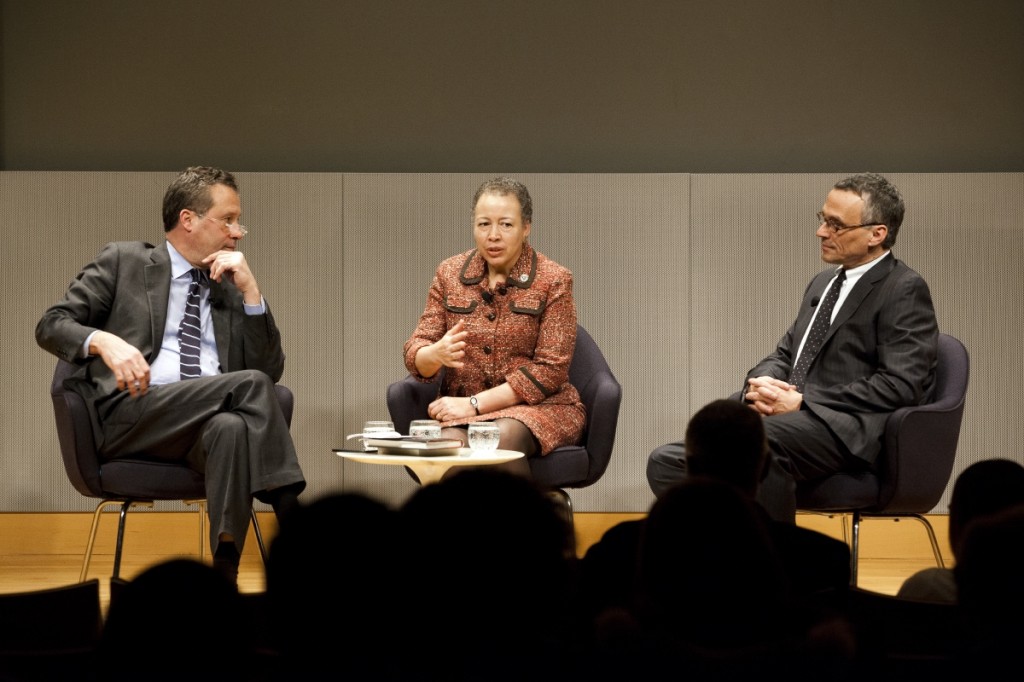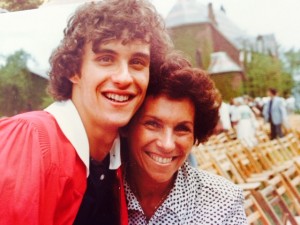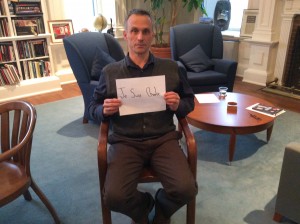I was asked to review Joel Klein’s Lessons of Hope: How to Fix Our Schools, and the essay appeared this week in The Daily Beast (with a more provocative title). Klein was a controversial Chancellor of the New York City school system, and regardless of what one thinks of his tenure, his book underscores some important issues. For those of us in Higher Ed, the health of the K-12 system is vitally important. We MUST fix our schools, and with thoughtful input, political will, significant resources and a spirit of experimentation, we CAN.
Joel Klein hates monopolies. As a Washington attorney he took on companies that seemed immune to change, even when they were ineffective. When you’re the only game in town, you just don’t have to do things differently – even if you aren’t very good. Klein’s most famous case was against Microsoft, and he took on the tech behemoth because he believed that it was preventing competition (and innovation) by depriving consumers of choice. When companies faced competition, Klein knew, consumers would have options. Competitors would force Microsoft to change, and the public would benefit.
When asked in 2002 by Mayor Michael Bloomberg to run the New York City School system, Klein understood that he was being invited to take over one of the great urban monopolies. Sure, there were private schools of various sorts in New York, but given their expense, only a tiny percentage of families could ever hope to make use of them. For everybody else, public schools were the only option – and these institutions often had an abysmal record. But when you’re the only game in town, you just don’t have to change.
Mayor Bloomberg was granted unprecedented power over the school system, and he chose Klein to force schools (and their teachers and principals) to open themselves to competition in order to break a cycle of failure. Klein himself was a product of the New York City public school system, and for him it had been a haven from a harsh familial and social life. Good, caring teachers recognized his talent and challenged him to work hard to compete at the highest levels.
There were still great teachers in the system when Klein took over as Chancellor, but they were treated no differently from mediocre or even inept instructors. The result was a system not open to alternatives from the outside and with no internal incentives for innovation. Lots of people expected failure, and they got lots of it. Nearly half of fourth graders were unable to do the math expected of them, and sixty percent of high school students were dropping out before graduation. It was a mess.
But it was a mess most teachers and student families had grown accustomed to. That’s what monopolistic practices do – they create a reliance on the status quo and a fear of change. Of course some students did manage to learn, and many teachers remained devoted to the project of educating kids from highly diverse backgrounds. But, as Klein puts it, “many of those who survived in this system tended to soldier on in a state of resignation and defensiveness.”
Klein had four basic reform strategies: seize control of the old system; shut down failing schools while establishing charter schools; empower principals; jump-start innovation. Thanks to Bloomberg the first strategy was accomplished early on, and Chancellor Klein quickly took advantage of his new centralized powers. For him, it was crucial to train principals in leadership skills that would enable them to build effective teams in individual schools, or to recognize that a school failing repeatedly had to be shut down.
Closing a school, even one that doesn’t perform, is so hard because schools are key components of neighborhoods – they aren’t just private companies failing to produce what consumers want. That’s why it was so important to Klein to be able to show families that there were viable options: new schools, often charter schools, whose leaders were not beholden to traditional ways of doing things – and who got results.
The teachers union looms large in this book, often as an evil force. The union’s function is to protect its members against changes that may negatively affect their working conditions. Most frustratingly for the school Chancellor, this made it all but impossible to fire terrible teachers. In what they call the “dance of the lemons,” bad teachers (the “lemons”) would be passed from school to school, their incompetence protected through exchange. Rather than recognizing and correcting sub-par performance, the union saw its function as protecting every teacher’s employment as long as possible. From Klein’s perspective, this protection came at the expense of student learning.
Klein spends many pages describing his frustration with the teachers union, but he says little about why the organization so ferociously defends the working conditions of its members. The union’s distrust of system administrators and political appointees isn’t exactly irrational. Although Bloomberg and Klein certainly did want to reform a failing school system, for decades politicians and bureaucrats had tried to balance budgets and play politics without all that much regard to the quality of classroom instruction.
Klein’s complaint with the union is not just that it failed to recognize incompetence but also that it failed to recognize achievement. The culture of solidarity for teachers as workers prevented acknowledging some teachers as more accomplished than others. Charter schools, rejecting the tenet of promotion through seniority, promised to do better. Their principals would not only ensure that the poor instructor either improved or was fired, they would reward the talented instructor who proved effective.
“Nothing,” Klein notes, “was more threatening to the education status quo in New York City than our charter school initiative.” This was striking at the heart of the monopoly. Charter schools could offer families choices about where to send their kids, and, as word spread about their successes, “demand for them in high-poverty neighborhoods went through the roof.”
Klein paints a rosy picture of the charter schools, while admitting that not all outperformed traditional public schools. Nationally, fewer than 20% of charter schools outperform their traditional counterparts, but in New York, charters have done significantly better than that. Most importantly, from Klein’s perspective, they opened the system to competition, and competition should in the long run lead to experimentation and innovation.
Innovation is the fourth his reform strategies. In order to know what innovations work, you have to have good information on how effective your practices are. In schools, this meant finding new ways to evaluate students – and hence their teachers. Testing is Klein’s royal road to innovation through accountability, although he insists that there isn’t a choice between testing and teaching. You can, he’s convinced, have both joined in a “positive cycle of competence.” These are buzzwords. You don’t learn to become a better teacher by giving your students more tests. Klein is less interested in discussing how teachers can continue to educate themselves to become better professionals; on this score, Elizabeth Green’s recent Building a Better Teacher is a useful supplement.
“As long as seniority reigns among teachers,” Klein writes, “we will fail.” The culture of promotion through seniority kills creativity and effectiveness. Just look at Congress. We need true accountability. But effective school leaders don’t just punish bad teachers and reward good ones. Effective educational leadership creates opportunities for professional teachers to become more successful by sharing with them practices that work and helping them shed those that don’t. As Klein acknowledges, “making curriculum more demanding without giving teachers the help required for them to deliver it effectively isn’t a winning strategy.” This is why as Chancellor, he opened innovation zones for experimentation: to discover better pedagogical techniques.
Like so many others, Klein has come to believe that it is technology that will bring pedagogical transformation. After finishing his term as Chancellor, he joined Rupert Murdoch’s NewsCorp, where he has been focusing on developing technological tools for teachers to personalize (and track) learning. This is a growing business arena, a market attracting lots of players. How effective the outcomes will be remains to be seen.
Joel Klein hates monopolies, but he really loves the private sector. He is convinced that the most powerful way to combat poverty and promote accomplishment is by opening traditional structures to competition and new ideas. This doesn’t necessarily mean privatization because there will still be ways for communities to retain local input if not control. But it will, in effect, be privatization if the profits of large corporations rather than the needs of neighborhoods determine what gets counted as good teaching and learning.
Lessons of Hope is often a compelling account of how determined leadership can remove obstacles to change, and he offers a strong defense of his work as an effective leader of reform. But it is too early to tell if the changes he helped unleash will prove sustainable, or if they will broadly serve our citizenry. Klein does know that today it surely isn’t enough to “save our schools,” as many chant. We need to “fix our schools,” even while recognizing that our efforts thus far are only works-in-progress. Without spaces for innovation, our students will be stuck without choices and with little hope for change. In the end, Klein underscores that education depends on hope, on the possibility for improving one’s life through learning. That’s a lesson for all of us.
Lessons of Hope: How to Fix Our Schools. Harper. $27.99





